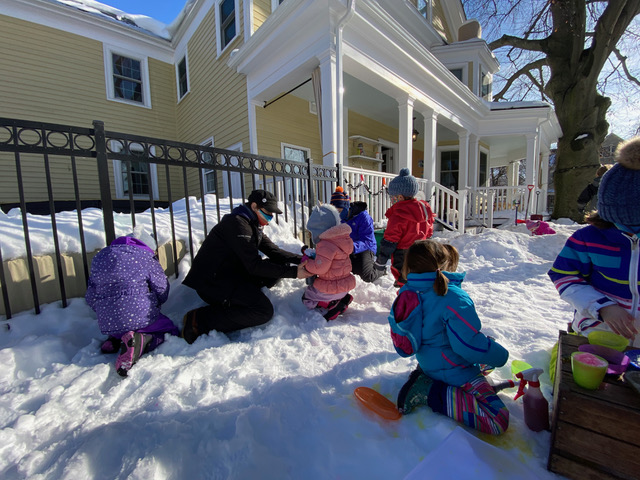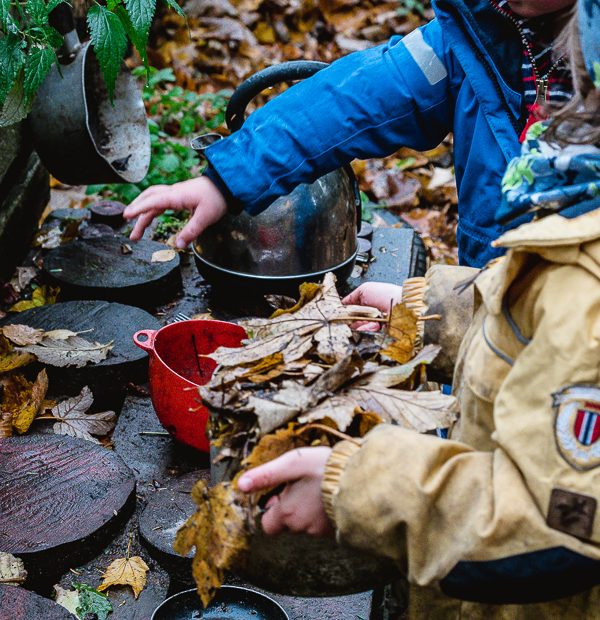Overcoming Covid and Cold: Life in an Outdoor Pandemic Preschool
By Iris Ponte | I wake up in the morning, and the first thing I do is check the outdoor temperature. As a preschool educator, I used to think 30 degrees was cold. Not anymore. Our school has opened in 17 degrees, multiple times. We have learned to layer, eat warm foods in thermoses, and keep moving. I was not trained to be an outdoor educator, but I have learned to embrace it. In fact, I don’t think I will ever be able to work with children again without prioritizing the outdoors.




